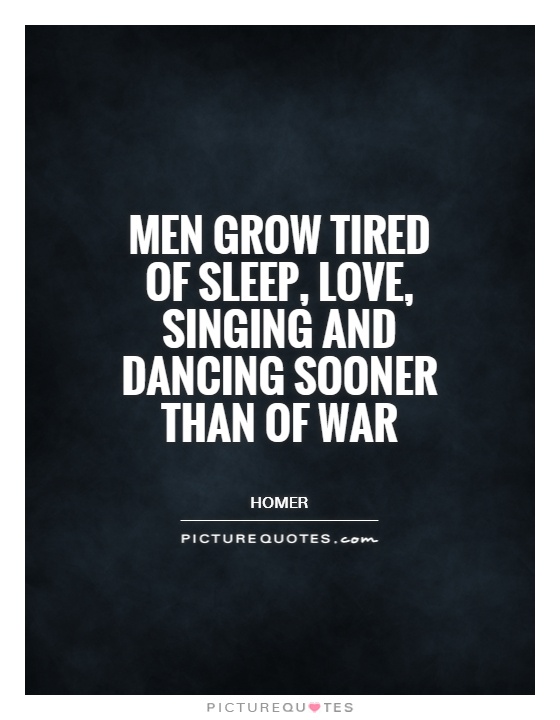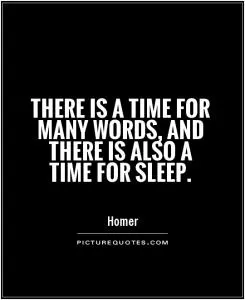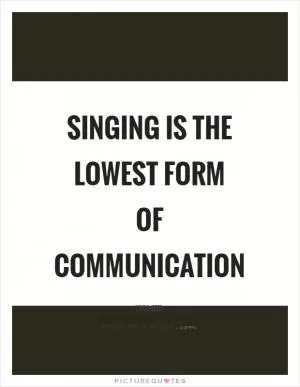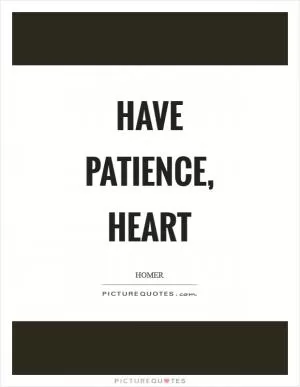Men grow tired of sleep, love, singing and dancing sooner than of war

Men grow tired of sleep, love, singing and dancing sooner than of war
In Homer's epic poems, war is a central theme that is depicted as both glorious and brutal. The quote "Men grow tired of sleep, love, singing and dancing sooner than of war" encapsulates the idea that war has a powerful hold on men, drawing them into its chaos and destruction.Throughout Homer's works, such as the Iliad and the Odyssey, we see how war shapes the lives of the characters and drives the narrative forward. The heroes of these poems are often defined by their prowess in battle, their courage in the face of danger, and their willingness to fight for honor and glory. War is portrayed as a test of strength and character, a way for men to prove their worth and earn their place in the annals of history.
The quote suggests that war has a seductive quality that can captivate men and draw them into its deadly embrace. Sleep, love, singing, and dancing are all pleasures that bring joy and fulfillment, but they pale in comparison to the thrill and excitement of battle. War offers a sense of purpose and meaning that can be intoxicating, driving men to seek out conflict and engage in acts of violence.
In Homer's poems, we see how war can consume the lives of its participants, leading them down a path of destruction and despair. The heroes of the Iliad, such as Achilles and Hector, are driven by their desire for glory and honor, willing to sacrifice everything in pursuit of victory. War becomes a way of life for these characters, shaping their identities and defining their legacies.
The quote also speaks to the enduring nature of war, highlighting how it has been a constant presence throughout human history. Men have always been drawn to conflict, whether out of a sense of duty, honor, or ambition. War has the power to shape societies, forge alliances, and tear nations apart, leaving a trail of devastation in its wake.












 Friendship Quotes
Friendship Quotes Love Quotes
Love Quotes Life Quotes
Life Quotes Funny Quotes
Funny Quotes Motivational Quotes
Motivational Quotes Inspirational Quotes
Inspirational Quotes